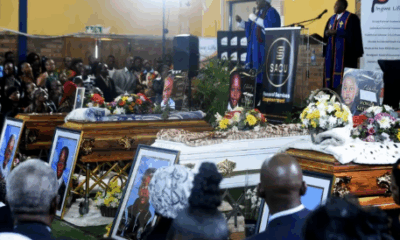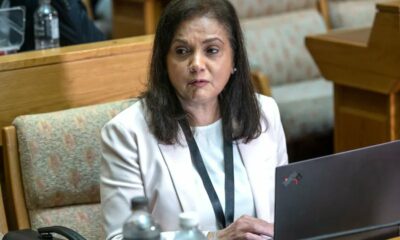News
‘Don’t Regulate Faith’: South Africans Push Back Against CRL Rights Commission Proposal

Faith Under Fire? South Africans Reject CRL’s Push to Regulate Religion
South Africans are raising their voices in defence of spiritual freedom after the Commission for the Promotion and Protection of the Rights of Cultural, Religious and Linguistic Communities (CRL Rights Commission) proposed mechanisms to regulate religious organisations. Critics say the move risks undermining the country’s constitutionally guaranteed freedom of religion, thought, and belief.
CRL Rights Commission: Intentions or Overreach?
The commission defends its proposal as a safeguard against abuse within certain religious groups. A committee, chaired by Prof Musa Xulu, was tasked with encouraging self-regulation among faith leaders to curb incidents of misconduct.
These concerns arose from previous CRL investigations into the commercialisation and abuse of religion, which highlighted shocking practices in some churches: congregants reportedly being sprayed with insecticide, made to ingest grass, consume petrol, chew snakes, or even tear out each other’s hair. There were also serious allegations of sexual abuse of young girls and coercion to donate large sums of money or gifts.
While the CRL frames its plans as protective, organisations like Dear South Africa argue that these measures cross a line. The NGO, which facilitates public submissions on policy matters, warned that the proposal effectively seeks to vet, license, and regulate all religious leaders and institutions, threatening the autonomy of faith communities.
Public Outcry: Over 30,000 Voices Strong
More than 30,000 South Africans have submitted feedback to Dear SA, urging Parliament to reject the proposed regulation. Many argue that religion is a divine calling, not a profession, and cannot or should not be licensed by the state.
“The CRL has no constitutional authority to regulate doctrine, ordination, worship, or religious associations,” Dear SA stated, highlighting that Section 31 of the Constitution explicitly protects the self-governance of religious communities.
Critics fear that introducing state oversight could lead to religious leaders becoming tools of government control, fundamentally threatening the right to spiritual freedom.
Existing Mechanisms Already in Place
South Africa’s diverse religious communities already maintain voluntary accountability structures, such as charters, codes of conduct, fraternal associations, and peer review systems. According to Dear SA, these self-regulatory frameworks have historically ensured oversight without compromising the independence of faith-based organisations.
Parliament, responding to the outcry, has rejected the CRL Rights Commission’s proposal to create legislation implementing a peer review committee system, acknowledging the potential constitutional and societal risks.
A Delicate Balance: Protecting Worshippers Without Controlling Faith
The debate underscores a tension in South Africa’s democratic landscape: how to protect vulnerable worshippers from abuse while respecting the freedom and autonomy of religious communities. While CRL’s intentions may focus on preventing harm, the public response highlights that faithdeeply personal and spiritualcannot be boxed into bureaucratic frameworks.
Social media in South Africa has been abuzz with reactions, with hashtags like #DontRegulateFaith trending, reflecting widespread unease about the state interfering in spiritual matters.
“Faith is personal, sacred, and voluntary. Regulation risks turning religious devotion into compliance,” wrote one Twitter user.
As South Africa navigates this complex debate, the consensus seems clear: religion must remain a sphere of conscience, not legislation, with the state’s role focused on protection, not control.
{Source: The Citizen}
Follow Joburg ETC on Facebook, Twitter , TikTok and Instagram
For more News in Johannesburg, visit joburgetc.com



























